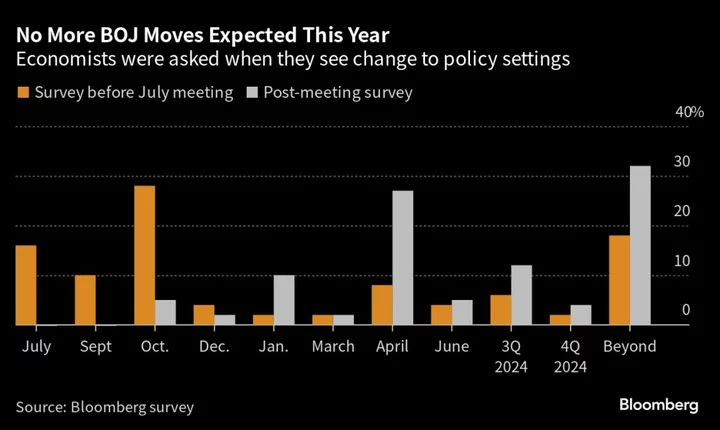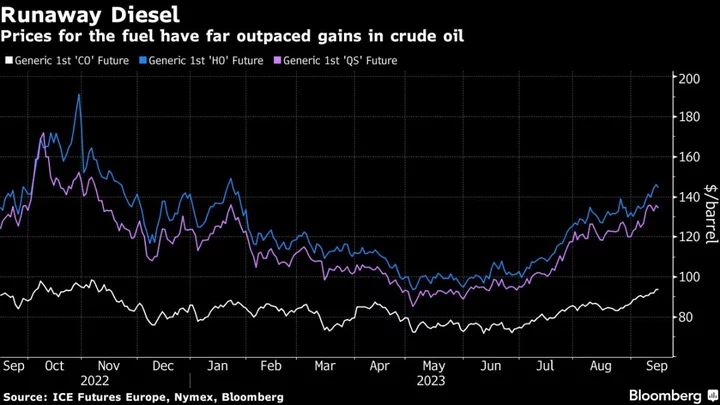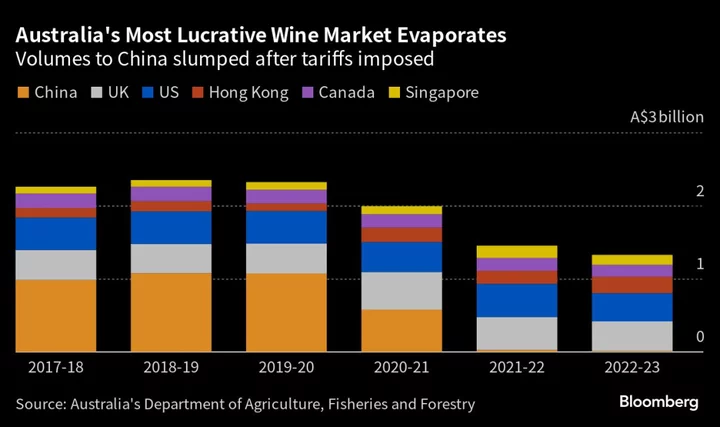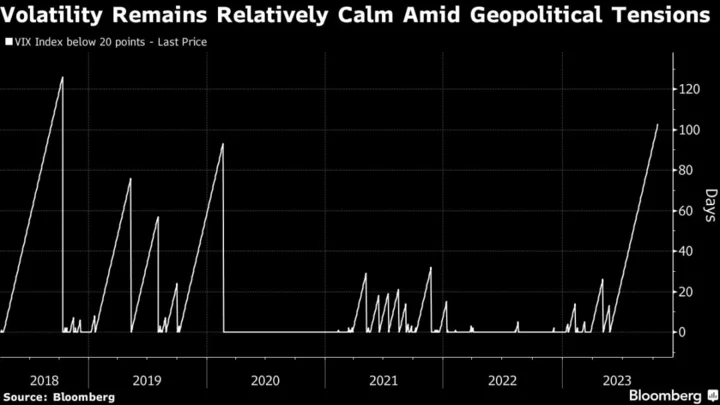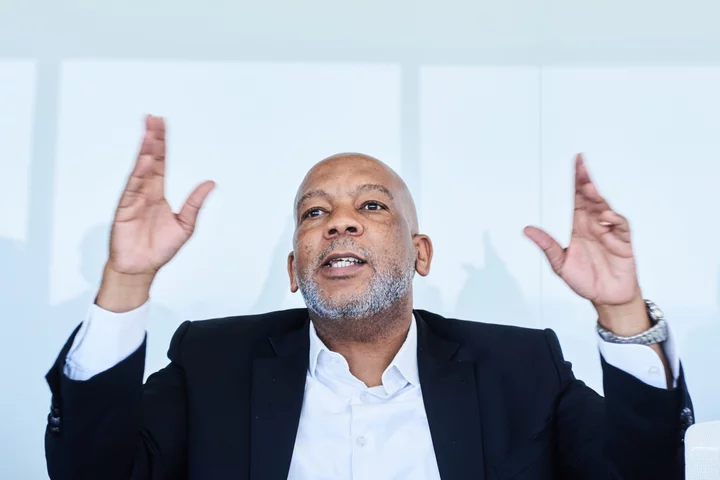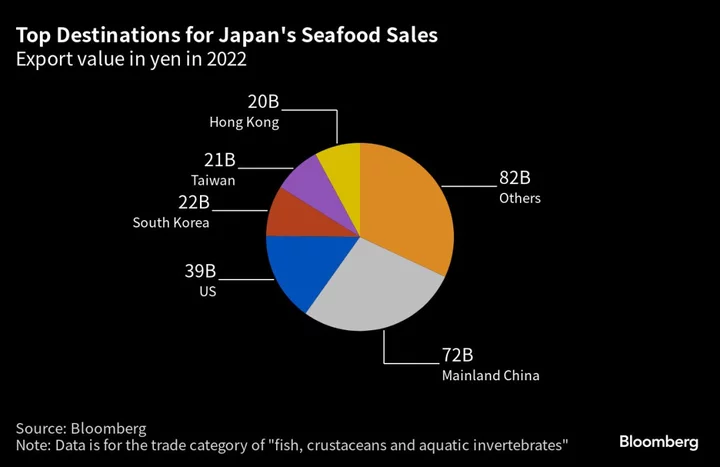Bank of Japan watchers don’t expect any further change from the central bank this year, after the BOJ surprised investors around the world by tweaking its yield curve control program last week, according to a Bloomberg survey conducted Monday.
More than 90% of 41 economists don’t anticipate any further moves this year, following Friday’s decision that effectively raised the tolerated ceiling for 10-year yields. Economists now see April as the most likely month for the next policy shift, chosen by 26% of respondents.
Click here to read the full results.
Following Friday’s surprise move, scrapping YCC is the most likely next step, according to 78% of economists, followed by 59% saying raising the negative interest rate is likely to be the next step from the central bank. The question allowed multiple answers from respondents.
Governor Kazuo Ueda jolted global financial markets last week by essentially allowing 10-year yields to rise to 1%, in his first surprise move after taking over the bank’s helm in April. While market players are still digesting the meaning of the change, 38% said that it effectively marks the end of YCC, with 55% saying it doesn’t.
The BOJ decided to control yields with “greater flexibility” after it had rigidly kept long-term yields below 0.5% with the aim of stimulating the economy and sparking inflation.
Asked where 10-year bond yields will likely settle after Friday’s decision, economists had a median forecast of 0.7%, the poll showed. The yield jumped to a nine-year high above 0.6% on Monday, prompting the central bank to launch unscheduled bond-buying operations.
“The latest revision can be seen as a de facto increase in the YCC ceiling,” said Mari Iwashita, chief market economist at Daiwa Securities Co. While it’s difficult to foresee the next move from the central bank, “for now it seems that the need for a further adjustment of YCC has subsided.”
At a post-meeting press conference last week, Ueda explained that a key reason behind the move was a need to prepare for upside inflation risks. The BOJ sharply raised its inflation forecast for this fiscal year and it sees risks on the upside for this year and next.
When Ueda’s predecessor Haruhiko Kuroda widened the yield band in December, about 70% of economists saw a problem with BOJ communication. Ueda got a favorable review, with 62% of economists saying his communication is either good or very good.
“So far the BOJ’s moves under Ueda have been pretty cunning,” said Yasunari Ueno, chief market economist at Mizuho Securities. “That said, in order to end negative rates the BOJ needs to be a lot more certain that sustainable, stable 2% inflation will be achieved. That hurdle is still reasonably high.”

